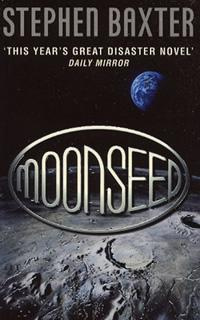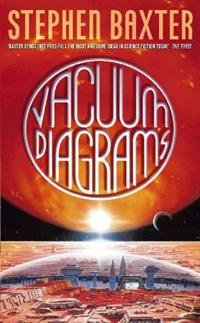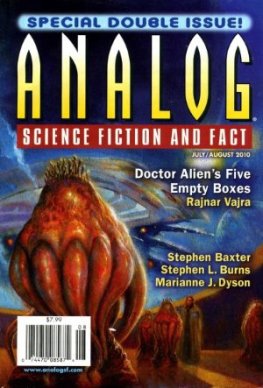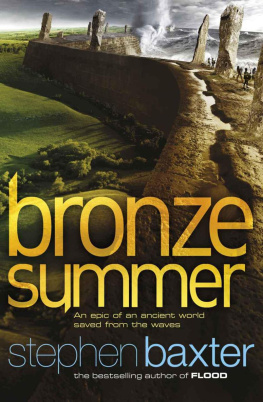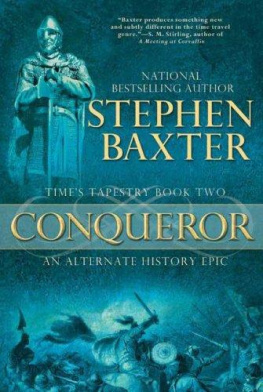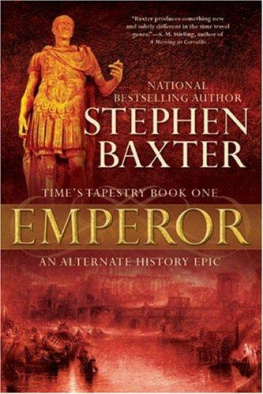Early Medieval Studies in Memory of Patrick Wormald

: Patrick Wormald on holiday in the Baltic, September 2003.
Photo: Luke Wormald
Early Medieval Studies in Memory of Patrick Wormald
Edited by
Stephen Baxter , Catherine Karkov , Janet L. Nelson and David Pelteret
First published 2009 by Ashgate Publishing
Published 2016 by Routledge
2 Park Square, Milton Park, Abingdon, Oxon OX14 4RN
711 Third Avenue, New York, NY 10017, USA
Routledge is an imprint of the Taylor & Francis Group, an informa business
Copyright 2009 The Contributors
The contributors have asserted their moral rights under the Copyright, Designs and Patents Act, 1988, to be identified as the authors of this work.
All rights reserved. No part of this book may be reprinted or reproduced or utilised in any form or by any electronic, mechanical, or other means, now known or hereafter invented, including photocopying and recording, or in any information storage or retrieval system, without permission in writing from the publishers.
Notice:
Product or corporate names may be trademarks or registered trademarks, and are used only for identification and explanation without intent to infringe.
British Library Cataloguing in Publication Data
Early medieval studies in memory of Patrick Wormald. (Studies in
early medieval Britain)
1. Great Britain History Anglo-Saxon period, 4491066
2. Great Britain History Norman period, 10661154
I. Wormald, Patrick II. Baxter, Stephen David, 1969
942.01072
Library of Congress Cataloging-in-Publication Data
Early medieval studies in memory of Patrick Wormald / edited by
Stephen Baxter ... [et al.].
p. cm. (Studies in early medieval Britain)
Includes bibliographical references.
ISBN 978-0-7546-6331-7 (alk. paper)
1. Great BritainHistoryAnglo-Saxon period, 4491066. 2. Great BritainHistory
Norman period, 10661154. I. Baxter, Stephen David, 1969 II. Wormald, Patrick.
DA135.E26 2008
942.01072dc22
2008019131
ISBN 9780754663317 (hbk)
ISBN 9781138248199 (pbk)
The Studies in Early Medieval Britain are intended to illuminate the history and society of the island of Britain and of its various regions between the fifth and the twelfth centuries. The series will include volumes devoted to different aspects and phases of that long period between the collapse of Roman imperial authority and the establishment of French-speaking aristocracies in different areas in the eleventh and twelfth centuries. It is planned to be a focus for interdisciplinary collaboration between historians, archaeologists, philologists and literary and cultural scholars. It will respect the differences between their disciplines, but facilitate communication between them. Avery substantial body of evidence survives from the early Middle Ages, but much of it is fragmentary and difficult to understand. The task of early medievalists is to master the necessary technical skills without weakening the fascination of their subject. There is a large public, lay and academic, whose interest in the origins of our society, culture and institutions has been whetted at school, college or university by local studies, in adult education or by popular television programmes. The Studies in Early Medieval Britain will therefore seek to reach this public by eschewing inaccessible jargon and by interpreting the early medieval past with the help of good illustrations and diagrams. The objective is to maintain the highest standards of scholarship, but also of exposition. It will therefore be open both to works of general synthesis and to monographs by specialists in particular disciplines attempting to reach a wider readership. It will also include collaborative studies by groups of scholars.
It is a great pleasure to include in the series a volume of essays in memory of the notable Oxford scholar Patrick Wormald, whose teaching, work and friendship illuminated a generation of early medieval studies, both British and continental. His death in September 2004 robbed our field of one of its stars and one of its major sources of intellectual inspiration. This volume gathers into one book 33 papers that were prepared by pupils, colleagues and friends for symposia held in 2006 in his memory at the International Medieval Congress at Kalamazoo and at St Hilda's College. Oxford. Their range mirrors the interests of their honorand very closely. Patrick Wormald focused his attention upon the political, governmental and cultural development of Anglo-Saxon England and above all on its law; but he held it as axiomatic that early medieval England and Anglo-Saxon law could only be understood against a background of research into contemporary developments in the nearby Welsh. Scottish. Irish and (above all) Frankish kingdoms. He would have been well pleased therefore that this volume should make such significant advances in our understanding of the world of Bede. of the dynasty of King Alfred and also of the workings of English law between the seventh and the twelfth century. But he would have been particularly delighted at the rich comparisons and contrasts with Celtic societies offered here and with the series of fundamental reassessments of aspects of Carolingian Francia.
The organizers of the Kalamazoo and Oxford symposia, joined by David Pelteret, have metamorphosed seamlessly into a team of skilled editors for this volume, who as far as the varying pressures of academic calendars have permitted have sought both to assist each other in the work and to resist on behalf of their hard-pressed contributors my sometimes foolishly optimistic attempts to push this volume through to early publication. Our combined efforts have resulted in a volume with a high representation of the papers that were conceived for oral delivery two years ago; it has been an honour to help steer this magnificent 33-ship convoy safely and expeditiously into the haven of publication.
NICHOLAS BROOKS
University of Birmingham
Feast of Abbot Benedict (Biscop) 2008
Most of the papers collected in this volume were presented at two symposia held in memory of Patrick Wormald in May and August 2006. The May symposium was organized by Catherine Karkov as part of the annual International Medieval Congress at Kalamazoo (Michigan), and was sponsored by the Richard Rawlinson Center for Anglo-Saxon Studies and Manuscript Research, of which Patrick was a much-valued board member. The participants at Kalamazoo included Nicholas Brooks, Scott DeGregorio, David Johnson, Lynn Jones, Sarah Larratt Keefer, John Niles, Thomas Noble, amonn Carragin, Lisi Oliver, David Pelteret, William Schipper and Elaine Treharne. Also participating in the symposium, but unable to include their papers in this volume, were Celia Chazelle, Mary Francis Giandrea and Paul Hyams. Patrick's former student, Shashi Jayakumar, was unable to participate in either conference, but has fortunately been able to contribute to this book.
The August symposium, held with pleasing aptness at St Hilda's College, Oxford, and organised chiefly by Stephen Baxter, was attended by some 60 people, among them Patrick's two sons, Tom and Luke. Of these participants, the following gave papers included in this book: Stuart Airlie, Stephen Baxter, John Blair, Nicholas Brooks, James Campbell, Thomas Charles-Edwards, John Hudson, Catherine Karkov, Simon Keynes, Henry Mayr-Harting, Rosamond McKitterick, Jinty Nelson, Thomas Noble, Toni Scharer, Joanna Story, Alan Thacker, Francesca Tinti, and Barbara Yorke. Also delivering papers in St Hilda's, but unable to publish here, were Lesley Abrams, Katy Cubitt, Chris Lewis and Richard Sharpe.





